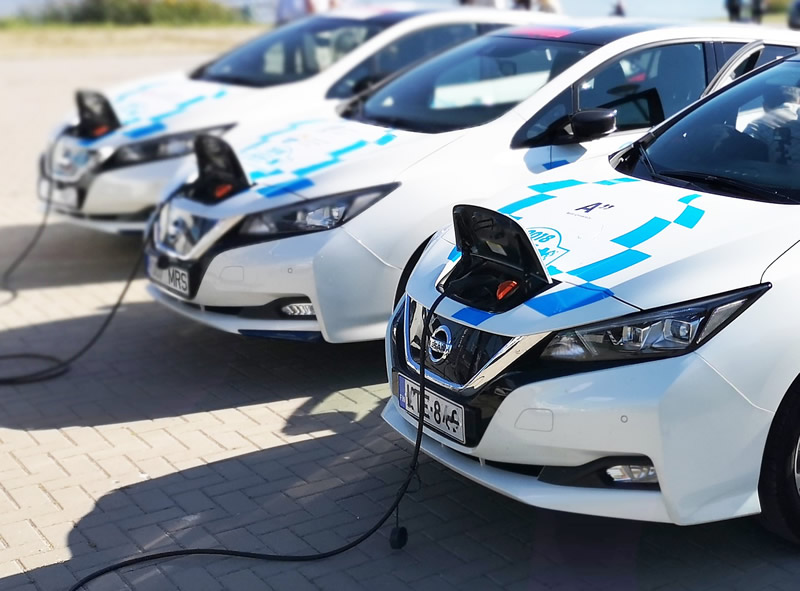Nissan to Create 1000s of jobs with electric vehicle investment in UK
Companies / Auto Sector Jul 20, 2021 - 01:22 PM GMTBy: Boris_Dzhingarov
Nissan is set to give the UK its first electric vehicle (EV) manufacturing base with the expected announcement of the country’s first “gigafactory” in Sunderland. The futuristic sounding gigafactory – which is the name given to any facility where EV manufacturers can produce batteries for their cars – will create thousands of jobs in the Sunderland area, but perhaps more poignantly give the UK a much-needed boost in an EV race in which it is fast falling behind.
The government has pledged an undisclosed contribution to the project – which is expected to cost hundreds of millions of pounds – such is the importance of the move. The introduction of the factory ties in with the UK’s wider green initiatives, which includes the upcoming ban of new petrol and diesel cars in 2030 as part of the government’s sustainable ten-point plan.

The first of many?
Nissan’s new venture represents the great hope for the start of the UK’s EV efforts. Ideally speaking, the factory, which is projected to be able to produce 200,000 battery cars a year, will be readily producing batteries in time for 2024 when the level of UK-made components in UK-made cars is required to start increasing in line with EU trade-deal expectations.
Regardless, Sunderland’s prospective gigafactory is merely the tip of the iceberg when it comes to the UK’s wider electric battery production requirements, according to car makers. As of right now, the UK is so far behind other global automotive powerhouses, namely Germany and the USA, in its targets for electric engine production that 90,000 jobs are at risk in the UK auto sector.
A new report from the SMMT has implored Boris Johnson’s government to do more to help further the UK’s electric cause, asking for more gigafactories, increased EV infrastructure and better stimulus packages for EV buyers in order to attract multinational investment and effectively position the UK in the new automotive landscape. With that in mind, Nissan’s expected announcement will be seen a positive step for the UK EV sector, but a late one that needs to be replicated swiftly.
A position under threat
The UK’s position as one of the world’s leading car and commercial vehicle makers is currently under threat, with the issue of electric capacity being the most pressing both now and in the immediate future. Nissan, at least, see the UK as a vital base, having had a significant presence in Sunderland since 1986 and already started battery production for its highly popular EV, the Nissan Leaf, in recent years.
The Leaf, having been in production since 2010, is one of the world’s pioneering battery electric vehicles (BEVs), and has fast become one of the brand’s best selling and flagship models, with over half a million sales totalled globally to date. Once the world’s all-time top selling plugin electric car, it has changed the commercial picture for Nissan significantly as well as for the consumer, with areas like Nissan GAP insurance being notably affected.
Ashwani Gupta, Nissan’s operations chief, said that Sunderland is “one of the best plants in the world for Nissan in terms of competitiveness”, however, it’s likely that the Japanese manufacturers interest will only continue if the infrastructure in the UK is sufficiently competitive when compared with other sites around the world.
Therein lies the problem for the UK government today. With the likes of the US and Germany racing ahead in their electric capacity, multinational brands are less likely to bring their efforts to British shores. While that’s the case, domestic car bosses are adamant that the government should do everything in its power to bring the UK auto sector back to competitive levels with global counterparts.
That task is, unfortunately, easier said than done, and those in the industry can expect to watch the UK play catchup in the EV market for some time to come yet.
By Boris Dzhingarov
© 2021 Copyright Boris Dzhingarov - All Rights Reserved
Disclaimer: The above is a matter of opinion provided for general information purposes only and is not intended as investment advice. Information and analysis above are derived from sources and utilising methods believed to be reliable, but we cannot accept responsibility for any losses you may incur as a result of this analysis. Individuals should consult with their personal financial advisors.
© 2005-2022 http://www.MarketOracle.co.uk - The Market Oracle is a FREE Daily Financial Markets Analysis & Forecasting online publication.



